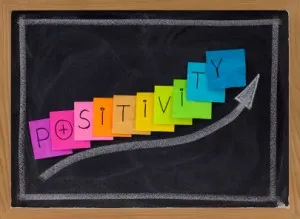Taking Ownership of Your Career: Developing an Individual Development Plan (IDP)

Have you drafted a career plan? Do you know if you have the required skills for your dream job? Figuring out the next step in your career and how to prepare for it can be stressful. But developing a plan, early on in your career, will help guide you through this process of identifying and achieving your career goals. This year, the OITE will be dedicating its blog to help you develop a Career Success Plan, focusing on a variety of core competencies that are critical for your career development, the first being career exploration and planning. This is where creating an individual development plan (IDP) comes into play. But, what is an IDP? And why it is so important? An IDP is a personalized document developed to help you define your career goals and implement strategies to help you accomplish those goals. There are many ways to develop your IDP. In fact, some universities, organizations, and/or institutes may have their own IDP documents in place. No matter what stage your career is in (postbac, grad student, postdoc) or what career path you are pursuing, an IDP can help you focus on short and long term goals with an action plan to follow. Remember, that as your career progresses, your plans might change, so you can always come back and review your goals adjusting them to your current situation. Developing an IDP requires time and effort. So it is important that you not only think thoroughly about your career by doing an honest self-assessment but also, by being committed to applying the strategies established in your plan to reach your goals. To help you build your IDP, we discuss briefly the some important elements of the IDP. Conduct a Self-Assessment Self-assessment helps you identify skills, interests and values that are key to finding a career that fits you. Understanding the strengths and weaknesses of your skills (such as communication and leadership), interests (such as mentoring and designing experiments) and values (such as fast-paced environment and flexibility) will all help you evaluate your needs and priorities in your career. Explore Different Careers Once you understand your needs and priorities, how do they relate to possible career paths? With so many career options, you want to make sure that the career path you choose matches your skillset and interests. You might also find a career path that you didn’t think about before but fits your needs. When exploring career options, networking and informational interviewing play a critical role to understand those careers that you are unfamiliar with and learn insights of the job. Set Goals Now that you have explored different careers, what is your plan to get there? This is where you should develop your short and long term goals that are SMART. By doing so, you will hopefully establish a timeline to stick to your goal. Implement Plan Finally and most importantly, is to put your IDP in ACTION! Remember, you are in control of your own career. If you don’t take it seriously, no one else will. Even though you can complete an IDP by yourself, you should choose a mentoring team that can guide and advise you through this process. Mentors play a critical part of the career planning process not only because of their personal and professional experiences but also because they can: provide feedback about your skills; help you reflect on your interests and values; and keep you motivated and focused. * Science Careers has a web-based career-planning tool called myIDP that can help graduate students and postdocs develop their IDP. SACNAS-IDP also provides advice on how to build a IDP for undergraduate students ** Disclaimer: This blog is informational and does not constitute an endorsement to Science nor SACNAS Website by NIH OITE


